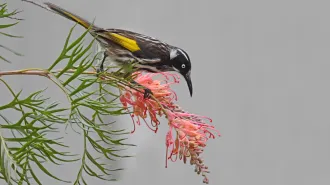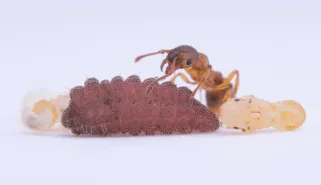From Snowbird, Utah, at a meeting of the Animal Behavior Society
Among ground squirrels in Africa, the hordes of flealike parasites that build up in shared burrows take an unexpectedly large, hidden toll on the mammal’s reproductive success.
Colonies of Cape ground squirrels (Xerus inauris) offer a chance to study the benefits and costs of group living, says Jane Waterman of the University of Central Florida in Orlando. She and her colleagues have been analyzing one of the possible costs: abundant insects that bite and suck blood from the animals.
Ground squirrels have their ways of fighting this annoyance, such as working through each other’s fur and nipping out pests. To see whether the parasites cause any measurable damage in a colony, Waterman treated seven groups of ground squirrels with compounds popular in the United States for controlling fleas in cats and dogs. During nearly 4 months of monitoring, she found no difference in body weight between the treated ground squirrels and those still living in infested colonies. What did differ was the number of offspring. The low-pest colonies had nearly five times as many pups as did the pest-ridden colonies.






